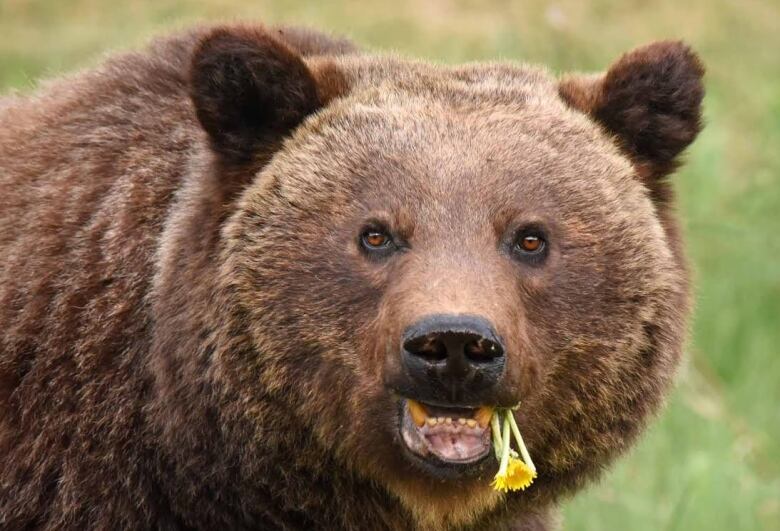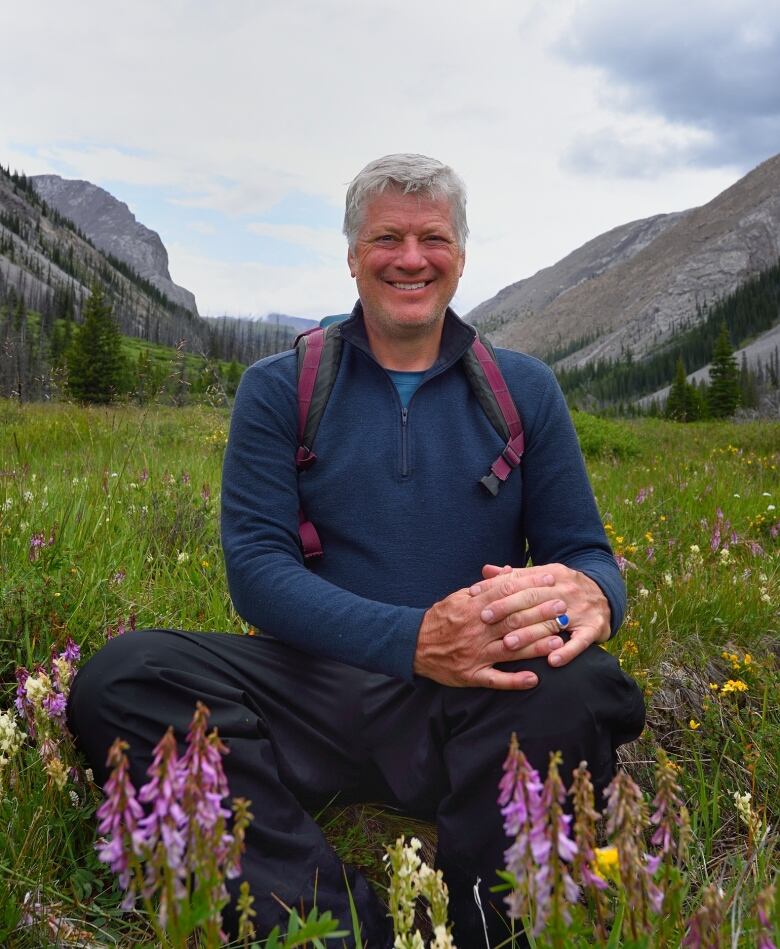Half the world must be set aside for nature, says Canadian conservationist

Harvey Locke is a self-described "free range conservationist".
His ancestors lived in the mountains of the Bow Valley before Banff became a national park, and he still lives in the town of Banff.
He happily shares his property with wildlife. It's not rare for a grizzly bear, or a wolf, or a 700-pound elk to wander through his backyard.

"I was astonished over time that we didn't see anything else that was alive there — how regulated the forests were, how the rivers were polluted, [how] the streams had all been dammed," he tells The Sunday Edition's guest host David Gray.
"As lovely as it was visually, it was biologically terribly impoverished. To my great personal surprise, I kind of made a vow to myself: I am not going to let that happen to the Canadian Rockies," he recalls.
To my great personal surprise, I kind of made a vow to myself: I am not going to let that happen to the Canadian Rockies.- Harvey Locke
The result is still a work in progress, but the Yellowstone to Yukon Conservation Initiative, which he helped spearhead, has led to wildlife overpasses on highways and connects habitats from the U.S. to Canada.

Ranchers and rangers and conservationists and politicians work together to create protected corridors for wide-ranging wildlife that don't recognize our human borders. Twenty-five years since its inception, the initiative is now a "global icon" in protecting threatened areas around the world.
"People come from all over the world to study it. It turns out that the Yellowstone to Yukon region has the most of these kind of crossing structures on a landscape scale on Earth," he says.
"These ideas start moving into society, and people start thinking about how we can contribute to them."
Several years ago, Gray joined Locke on a backpacking trip through the Castle Mountain ranges of Southern Alberta. There were no trails or campsites — or other people, for that matter.

It was there that David Gray first became familiar with Locke's passion for protecting natural areas, and linking together ecosystems. The Castle region has since been protected by the Alberta government; it was named a new provincial park in February 2017. An adjoining area in B.C., home to the headwaters of the Flathead River system, remains unprotected and largely ignored by the British Columbia government.
According to Locke, Canada is a "laggard" when compared to other countries around the world in terms of ecosystem protection. We are far short of meeting the global target — 17 per cent of the land and 10 per cent of the oceans — which was set under the Convention of Biological Diversity.
These countries that we think of being less prosperous have a much greater commitment to nature conservation than we've demonstrated.- Harvey Locke
"These countries that we think of as being less prosperous have a much greater commitment to nature conservation than we've demonstrated … It's embarrassing and we need to fix it," he says.
These days, Locke travels the world to encourage people to think about the needs of the Earth and not just our needs as a species — an idea that he refers to as "nature needs half."

"If you look objectively at the trends, the news is far worse than the media would let you know," he says.
Locke says people are aware that "something is very wrong with our relationship with Planet Earth." So now, he says, no less than half the world should be set aside for nature.
"I think that the idea of protecting half the world gives us all something to believe in, to participate in, to implement," he tells Gray.
"And that gives us a path forward that would solve our environmental problems."
Locke spoke to Gray in his backyard inside Banff, Canada's oldest national park. Click 'Listen' above to hear their interview.